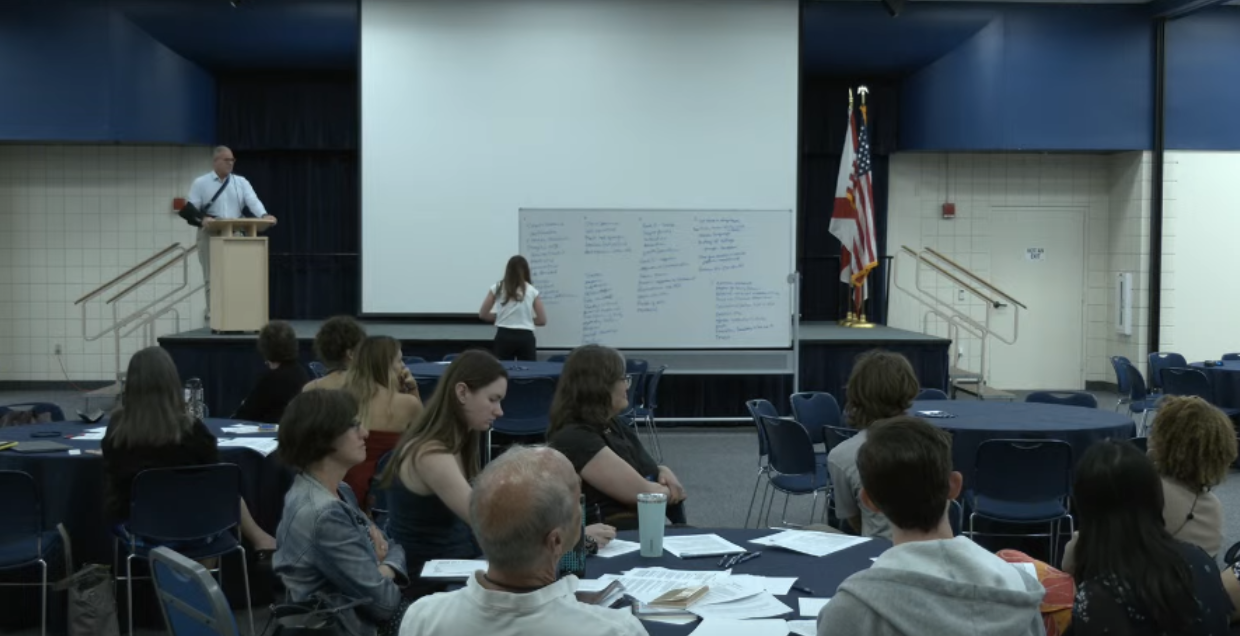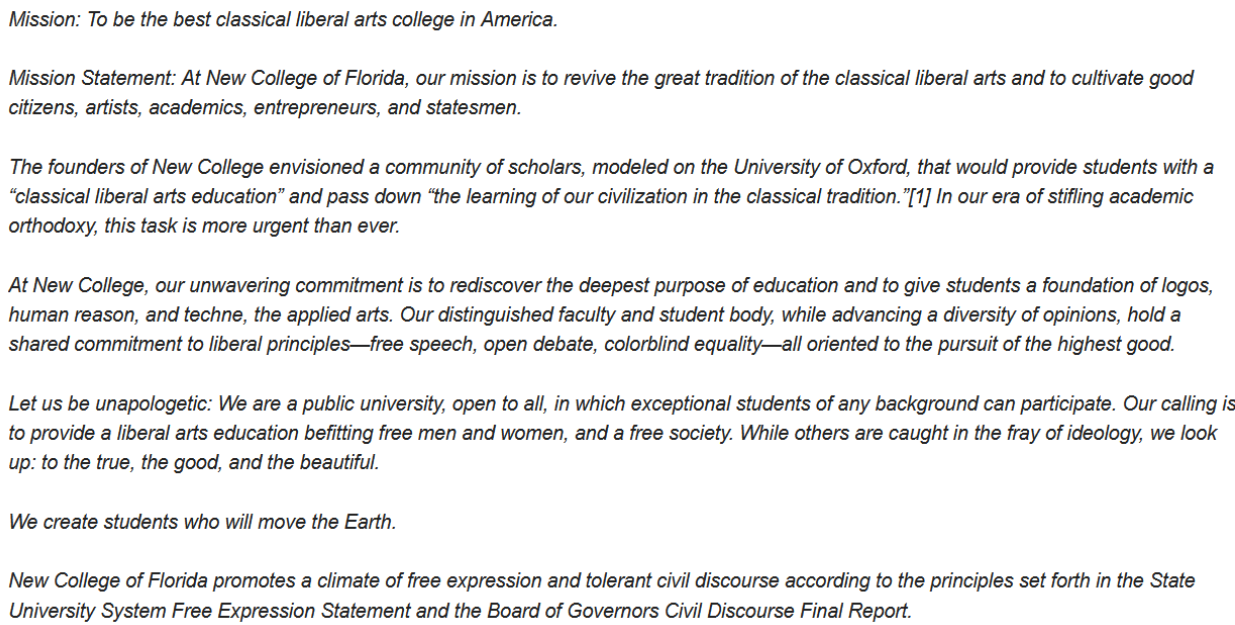New College students, faculty and alumni made small talk in the Harry Sudakoff Conference Center as they waited for the feedback meeting to start. In less than 30 minutes members of the New College community would get a chance to discuss among each other a topic that has been controversial on campus since the President’s Office announcement email back in February – a revision of New College’s mission statement. Members of the audience discussed concerns around length, verbiage and content of the proposed revision in an April 23 meeting facilitated by Provost David Rancourt in hopes of creating a statement that unifies rather than divides.
The Mission Statement Feedback Meeting was open to all students, faculty and staff and was advertised by New College Communications and Marketing as a collaborative session to collect feedback and suggestions for the mission statement review process. Audience members received the current proposed mission statement revision and the statutory statement.
The process of revising the mission statement began with receiving feedback electronically back in February. After the recent in-person meeting, administration will begin drafting a proposal regulation for board consideration to be finalized around May 13 and presented at the June 13 Board of Trustees meeting.
Rancourt made it clear that collaboration on the mission statement does not end after the meeting is over. Anyone who would like to voice their opinion about the revision of the mission statement can still contact mission@ncf.edu with their thoughts or concerns.
“We certainly want this to be collaborative, we certainly want this to include everybody in the campus community that we can or anybody who’s got an interest in this,” Rancourt stated at the April 23 meeting. “It doesn’t end today. There will be other opportunities to email us and follow up with additional ideas to have something that’s succinct, perhaps a little poetic, but focused on what our goals are going forward as a college.”
The general consensus of the audience was that the mission statement should be more concise and less aspirational.
“It should be actionable, so it should speak to things that we do that are concrete and measurable as opposed to being a vision document that speaks to our aspirations,” one faculty member in the audience commented. “It should be something that says what we actually do.”
Members of the audience also agreed that the mission statement should put more emphasis on the students and the aspects that make New College unique should be directly referenced in the mission statement.
“It should first and foremost center students in terms of our program…” the faculty member added. “There’s an emphasis on close faculty student relationships, mentorship and that the education can be highly personalized for the student. We empower students and eventually expect students to become self-directed, take agency in their education and responsibility for it. We talked a little bit about the outcomes that we want to see in our students that graduate from the program. We hope they graduate to be resilient, self-directed, reflect academic excellence and are good citizens in a global world.”
“We talked about what makes New College, New College,” an attendee at another table stated. “It’s the support that you have with close collaboration with faculty, the individualized tailored curriculum, individualized narrative evaluations… It’s encouraging individualized growth and excellence.”
The audience also agreed that the mission statement should transcend what’s happening in the current moment and remain unpolitical.
“The problem that we had with the initial draft was that it’s a text that provokes controversy and argument rather than a rallying cry that we can all agree to and feel comfortable with,” one audience member commented. “It’s likely to exacerbate any divisions that are currently existing at the college.”
“The word ‘colorblind’ struck me as not very useful in an academic context because blindness seems somewhat counter to what an academic institution is striving towards,” a student commented. “We want to shed light, we want to see the truth.
“What drew me here was the freedom,” the student continued. “Freedom is something we have to live up to. If I were to have a succinct mission statement for this college, it would include the word freedom and the importance of living up to that, the responsibility of freedom.”
One table in the audience suggested starting the draft from scratch entirely and incorporating the original mission statement of the college. “We didn’t find much in the draft that’s been proposed that we thought was worth keeping,” they stated. “Maybe a little bit of that language, but I think we like the existing mission statement… I would strongly recommend that we just ditch the existing initial draft and also focus on the state statute language, which I would think would be something we’d want to be consistent with.”
At the end of the meeting, Rancourt made further comments on the feedback that was received. He briefly summarized some of the themes that he heard more than once from the audience. These themes included: keeping it short, student-centered, empowering, self-directed, personal responsibility, individualized courses of study, expanding horizons, skillset to grow, honors, free viewpoint expression, residential, a uniting message and freedom.
“I think overall I heard a message that we want our mission statement to unite and not divide,” he stated. “I think that’s a very important component of what we’re trying to do here.”



